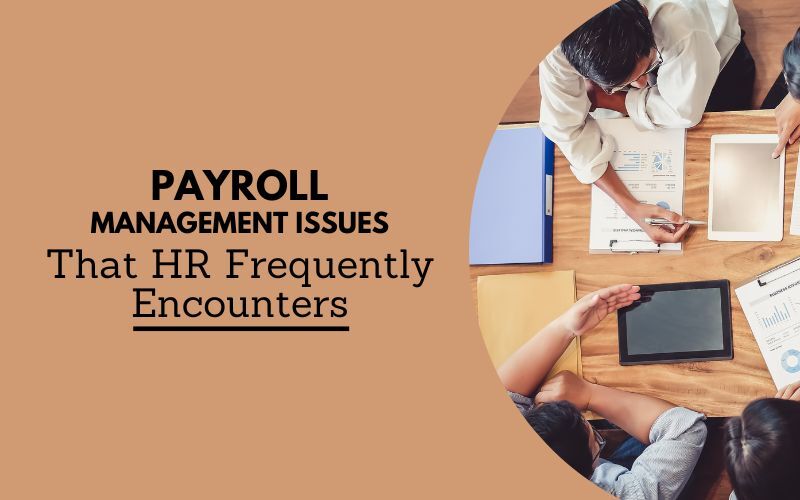Payroll Management can be challenging, especially if you are a human resource department in a large organization. It can also be frustrating for your employees, who are often concerned about how the payroll is processed. But there are several common problems that HR faces in this area. These issues include misclassification of employees, computational problems, data privacy and security, and transferring data in batches.
Workforce management software helps companies to optimize their staffing, reduce labor costs, and improve productivity by automating and centralizing their workforce-related tasks.
Computation Problems
Payroll management is a complicated process involving an unending list of factors to be considered. This is a significant feat. Some of the biggest challenges include human error, data duplication, data security, and time-consuming processing of employee timesheets.
A few important things to consider when implementing a payroll management solution. One of the most critical is ensuring that your employees are rewarded for their efforts. If they are not adequately rewarded, they may be disgruntled and look for new jobs. Another significant issue is maintaining employee attendance. It cannot be easy to accurately track employees who work out of the office or are on-call.
In today’s world of remote working, a well-designed payroll system is necessary. Keeping this in mind, HR managers are looking for the best ways to streamline their processes. A scalable and reusable software solution can be the best way to do it.
Misclassification of Employees
The misclassification of employees is one of the most common problems employers face in the payroll management process. Misclassification happens when businesses or organizations assign workers independent contractors rather than employees. This can lead to wage violations, back taxes, and even litigation.
Employers often misclassify their workers because they believe they are not subject to federal and state wage laws. However, it is essential to know that the IRS and state labor agencies are on the warpath regarding catching and enforcing these laws.
The penalties for employee misclassification vary by country. The penalties may be severe for companies that intentionally break the law. But they can also be imposed by honest mistakes or misunderstandings.
When misclassification is discovered, the employer must make the worker whole. This can include compensating the employee for lost benefits. It may also mean reclassifying the worker as an employee.
Employee misclassification can be avoided by adequately tracking your workers’ time. Employers can use automated time and attendance systems to keep track of the hours worked. This can help prevent overtime violations.
Transferring Data in Batches
It’s no secret that managing employee attendance is a daunting task. And while there is some debate about the actual cost of employee absenteeism, one thing is sure; payroll is no small expenditure, and the price can add up. Luckily, there are many software solutions out there to help you along. Payroll is no small feat, from time clocks and time card tracking to human resource management. You need to make sure that you’re in the know when it comes to managing your staff. An HR plan will ensure you get the most out of your employees and their hard-earned dollars.
The best way to accomplish this is using a payroll management service provider. These companies have the expertise, know-how, and resources to do the job correctly. They can suggest how to get the most out of your existing HR plan.
Privacy And Data Protection Concerns
Data privacy and data protection are two words that should not be treated lightly. This is especially true when it comes to health data. For instance, how do you defend your organization against a security breach? The best way to approach such a scenario is to devise a solid contingency plan. To help you with this, look at some of the Workgroup on Electronic Data Interchange recommendations, which will be discussed in detail later in this chapter.
It is also essential to recognize the importance of the health data you collect. For example, it is common to find a database of patient records accessed by other healthcare organizations (HDOs) in a hospital setting. An excellent way to ensure that your privacy is not compromised is to develop a secure, bespoke database that is only accessible to your personnel. If you want to improve your security credentials, consider joining HDOs like the National Health Information Network.
The best way to do this is to implement a policy that outlines your requirements and ensures that all employees are fully aware of your policies. These policies should include the appropriate privacy policies and procedures for each employee and a set of guidelines that a person should follow when handling data in an administrative capacity.
Legislation Issues
Whether you’re a small business or a large organization, HR faces several legislative issues in payroll management. Failure to comply with these laws could result in costly penalties or lawsuits. Your business needs to stay in tune with the changes in legislation.
In addition to the primary federal laws, your organization must also abide by the state laws that pertain to labor. These laws regulate the amount of pay, overtime, and leave your employees are entitled to. They include the Fair Labor Standards Act, which sets the minimum wage.
Keeping up with all of the legal changes can take time and effort. However, there are more innovative solutions to help your company comply with these laws. You can even outsource these duties to a third-party company to help.
Also Read: A Peek into the Future: Technology in 2023




